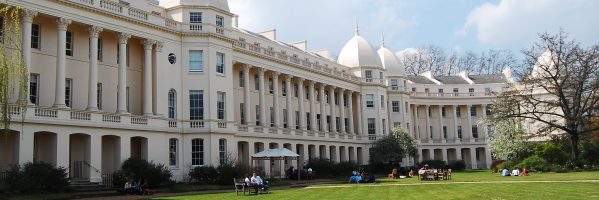London Business School Professors Earn Thinkers50 Nominations

Two professors with the London Business School have gained some global recognition.
Professors Andrew Scott and Lynda Gratton have been shortlisted for a 2017 Thinkers50 Distinguished Achievement Award. Thinkers50 is responsible for “the world’s most prestigious ranking of management officials,” according to its website. More than 4,000 people were nominated.
Scott and Gratton are in the “Breakthrough Idea Award” category, which recognizes work that can radically alter the way people do business. The professors were nominated for their 2016 book, The 100-Year Life: Living and Working in an Age of Longevity, which breaks down how individuals should take advantage of humanity’s increased lifespan. “The 100-Year Life” draws on Scott and Gratton’s expertise in psychology—and economics. Finances, time, and relationships are among the book’s topics.
“Our research explores the reality of a multi-stage life with a variety of careers to include breaks and transitions, demonstrating how to make a gift from a long life,” Scott said in a press release.
Scott focuses on macroeconomics and has taught at Harvard and Oxford University. Gratton, on the other hand, specializes in organizational behavior, which she’s covered for more than 20 years. She was also named the best teacher at the school in 2015.
“Being shortlisted for this award is very exciting,” Gratton said. “A 100-year life means taking responsibility for the shape of one’s own life, rather than leaving it to the institutions of work and state that have governed many people’s situations for several generations.”
Check out the rest of the Thinkers50 shortlist, which also includes Aaron Hurst, CEO of Imperative and author of the 2016 book The Purpose Economy, former Apple executive and fellow author Nilofer Merchant, among others.
Winners for the Thinkers50 award will be announced at its gala November 13 in London.
Oxford Saïd Offers 6 New MBA Scholarships

Earning an MBA from a leading program typically isn’t cheap. In fact, the average cost of an MBA when you total tuition and living expenses is between $100,000 to $200,000 for two years. For that reason, MBA scholarships can be invaluable for many candidates, and now the University of Oxford Saïd Business School is offering six new scholarship opportunities for incoming MBA students. Continue reading…
SDSU Sports MBA Team Wins Case Competition

For the first time, the SDSU Fowler College of Business Sports MBA program won its own case competition. The 8th annual SDSU International Sports MBA Case Competition has invited teams from MBA programs around the world to compete for almost a decade. This past year, teams came from MBA programs at schools such as Hong Kong University of Science & Technology, the University of Oxford, the University of Michigan, UCLA and USC. But this time, the winning team of four graduate students came from SDSU. Continue reading…
Oxford Saïd MBA Students Rethink Retirement To Win GOTO Summit

What does the future of work look like and how can we adapt? That’s the question that MBA students at the University of Oxford’s Saïd Business School set out to tackle. As part of the Global Opportunities and Threats: Oxford (GOTO) summit, six MBA teams presented their plans on how to rethink retirement to a group of judges for a chance to win £2,500. Continue reading…
The Media MBA: Advice from a Student in the Trenches

An MBA with an emphasis in entertainment and media isn’t something you hear about often. In fact, according to GMAC’s 2016 Prospective Students Survey, a career in media is barely a consideration for most MBA candidates. But that wasn’t the case for Kristina Partsinevelos, a 2017 MBA candidate from the Oxford Saïd Business School. Kristina started her career as a journalist, producer and TV news anchor, and she plans to continue in media post-graduation. And for her, an MBA was a natural step to further her career. Continue reading…
The Potential Impact of Brexit on U.K. Business Schools

British Prime Minister Theresa May plans to invoke Article 50 of the European Union Lisbon Treaty on March 29th—triggering the United Kingdom’s two-year process of exiting the bloc of nations it has been part of for four decades. Given this, it seems a good time to look at the impact of Brexit on U.K. schools. According to a 2017 GMAC Brexit-U.S. Survey, 45 percent of respondents claimed that Brexit would make them less likely to study in the United Kingdom. But what does that figure mean? Are U.K. schools expecting fewer applications from top international talent, or is everything well? Continue reading…
